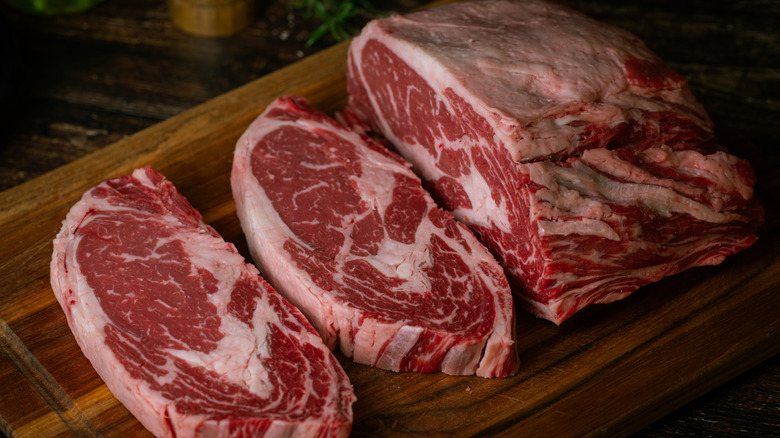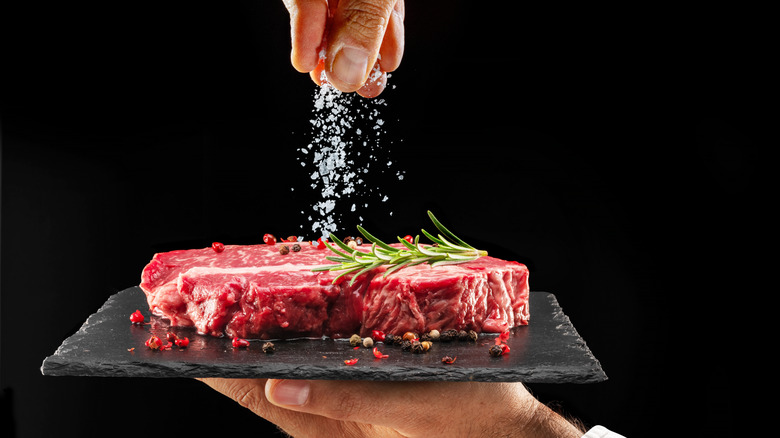The Cut Of Steak You Should Absolutely Never Marinate
We here at The Takeout frequently advocate for marinating your meat — especially tougher cuts of steak — before grilling it, but it isn't a catch-all method you should use for every steak you make. If you fear that a steak lacks natural flavor or will be especially tough, marinating it can greatly improve your meal. However, if neither of these concerns is present, there's no reason to take that extra step.
We spoke exclusively with chef and co-owner of the renowned Michelin-starred restaurant Cyrus, Douglas Keane, about when not to marinate steak. He says marinades aren't always a recipe for success. "The main reason not to use a marinade is that you want a more pure beef flavor in your steak," Keane explains. With this in mind, the chef noted that there are a few high-end cuts of steak that you should avoid marinating altogether. "Striploin, ribeye, and tenderloin don't need a marinade to be tender," Keane advises. Now, just because steaks like the ribeye and striploin shouldn't be put in a liquid marinade before they're cooked doesn't mean you shouldn't be prepping the cuts in some way. More specifically, salt is your best friend.
How to prep high-end cuts of steak without using a marinade
"The luxury cuts are muscles that the animal doesn't use as much as the other cuts, so they are naturally more tender, and they are all the more marbled," Keane shares. While the marbling of a piece of meat can differ depending on where you get it from — we suggest going to a butcher shop rather than a supermarket for high-quality steak — a well-marbled cut has more than enough flavor to satisfy your taste buds on its own. Salt can also help when it comes to high-quality cuts of steak, as it can be used to get more flavor out of the protein.
For starters, while marinades are a no-go, dry brining high-end steaks by applying salt and resting them for as little as 45 minutes or as long as 36 hours for thicker cuts of beef. This will give your steak saltiness without distracting from its strong natural flavors. Alternatively, you can season your steak directly before grilling it, ideally with no more than salt and potentially black pepper. While this won't result in the seasonings penetrating the meat, it will do wonders for the flavor of its surface.
The important thing to remember when using this method, however, is the importance of allowing your steak to rest at room temperature for about 30 minutes before cooking — regardless of whether and when you season it — to ensure it cooks evenly.

